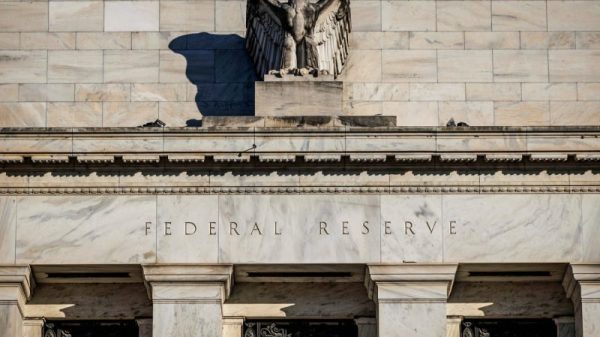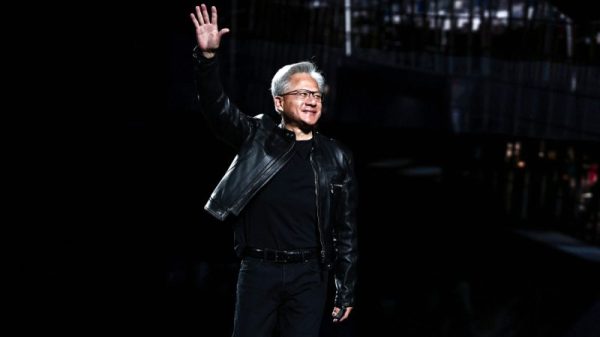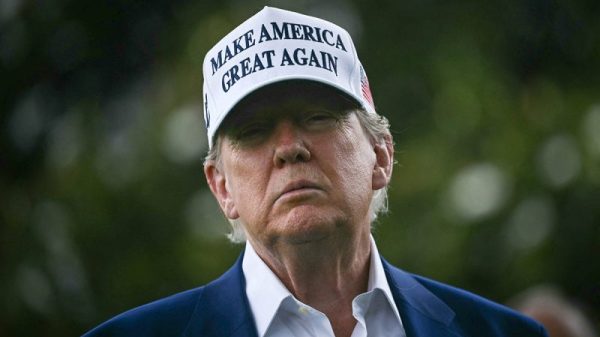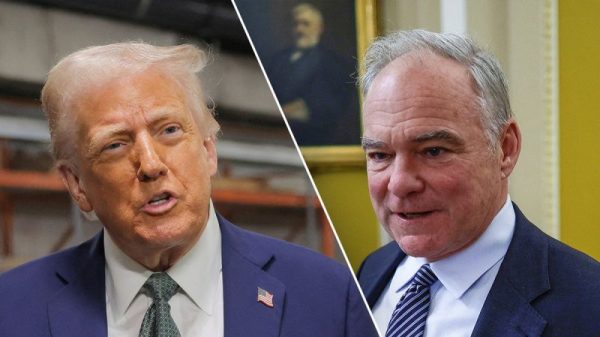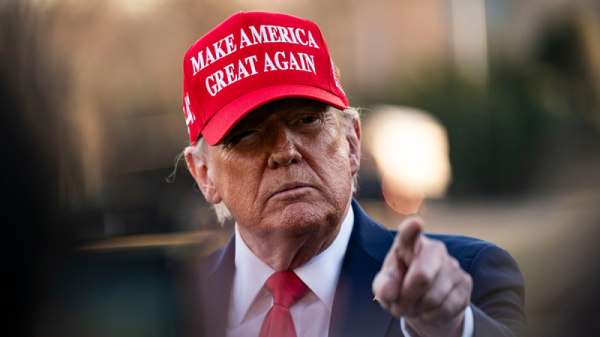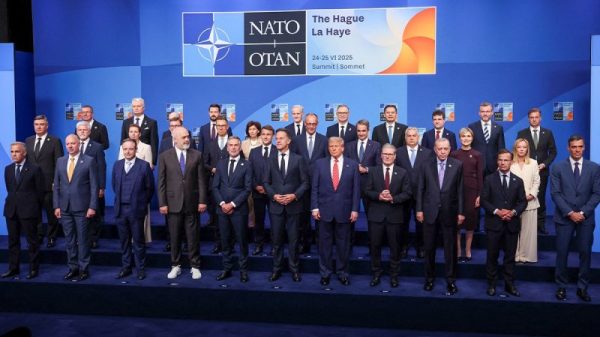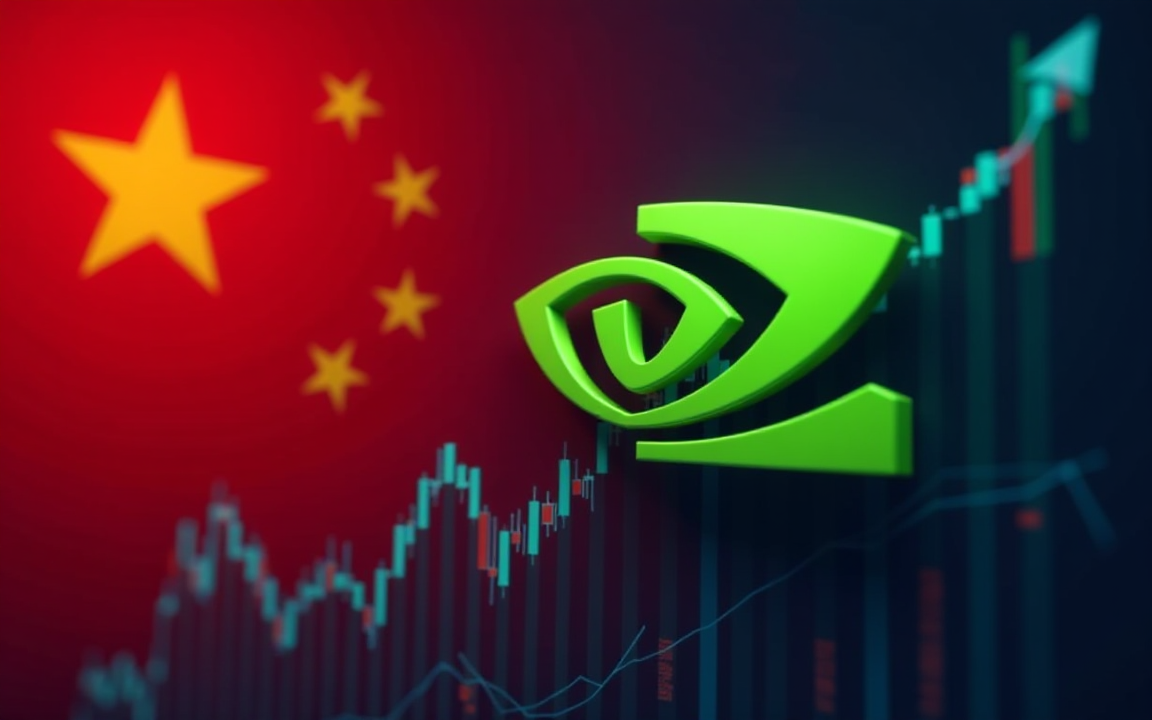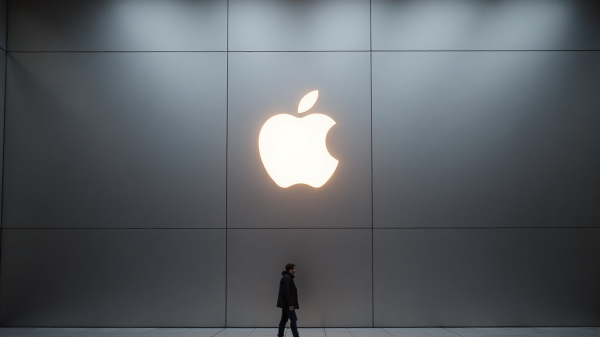Nvidia shares surged in premarket trading Thursday after the chipmaker posted robust quarterly results that exceeded Wall Street expectations.
However, the celebration was tempered by renewed criticism from US lawmakers concerned over Nvidia’s planned facility in Shanghai in China, according to a report by The Wall Street Journal, in an issue that could complicate the company’s future amid intensifying geopolitical tensions.
Shares of Nvidia were up by more than 5% as of 8:26 am New York time, following the release of its fiscal first-quarter 2026 earnings.
The company reported revenue of $44.1 billion, marking a 12% increase from the previous quarter and a 69% jump compared to the same period a year ago.
Analysts had anticipated a softer performance, and the upside surprise helped fuel a broader rally in semiconductor stocks around the globe.
Nvidia writes down $4.5 bn in chip inventory not shipped to China
Despite the overall strength in Nvidia’s earnings, the company disclosed a significant hit stemming from US export restrictions to China.
It wrote down $4.5 billion in H20 chip inventory that could no longer be shipped to the Chinese market and estimated a further $2.5 billion in lost revenue.
The chips had been developed to comply with earlier US restrictions but were caught in the net of tighter curbs announced in April.
Even so, Nvidia reported non-GAAP earnings per share of $0.81, or $0.96 when excluding the inventory-related charges.
The results further cement Nvidia’s role as a bellwether for the broader semiconductor and AI sector, with companies like Tokyo Electron, SK Hynix, ASM International, BE Semiconductor Industries, and ASML all trading higher in the wake of the report.
Political backlash over Shanghai facility may cloud outlook
While investors welcomed the financial results, Nvidia’s expansion plans in China have drawn sharp political backlash.
In a letter viewed by The Wall Street Journal, Senators Jim Banks of Indiana and Elizabeth Warren of Massachusetts called on Nvidia CEO Jensen Huang to provide details about a planned Shanghai facility, the publication reported.
The bipartisan letter described the site as a potential risk to US national and economic security.
The facility “raises significant national security and economic security issues that warrant serious review,” they said in the letter.
They requested information on the timeline, project scope, and any financial incentives involved.
Responding to the letter, an Nvidia spokesperson stated the company “is simply leasing a new space for existing employees, who need the room in the post-Covid return to work. The scope of work will remain unchanged.”
The company has said no advanced chip designs will be sent to the facility.
Caught between markets and governments
Nvidia remains at the center of the US-China technology standoff, as it tries to preserve access to both major markets while adhering to increasingly complex export rules.
The company’s moves abroad are closely watched by policymakers who fear advanced AI chips could be used in military applications or by adversarial states.
The scrutiny has only intensified following Nvidia’s recent agreement to sell chips to the United Arab Emirates, a deal that has drawn concern from US national-security experts due to the UAE’s ties with China.
Last week, Huang openly criticized the export curbs, calling them ineffective and counterproductive as they drive innovation efforts within China.
As the Trump administration signals a tougher stance on high-tech exports to China, investors are closely watching whether Nvidia will proceed with the Shanghai expansion and how it will design chips suitable for the Chinese market within regulatory limits.
The company’s future earnings could hinge on its ability to navigate the fine line between commercial opportunity and geopolitical compliance.
The post Why Nvidia is facing scrutiny despite strong earnings as stock jumps 5% appeared first on Invezz








